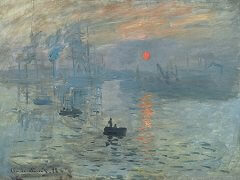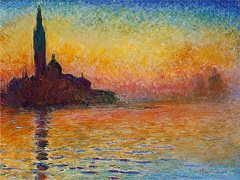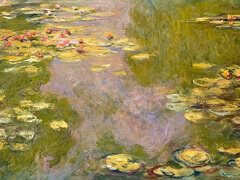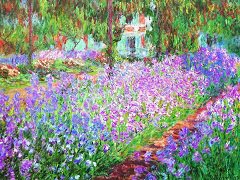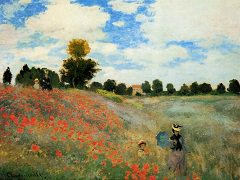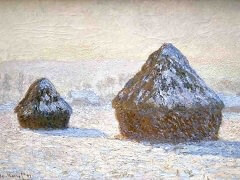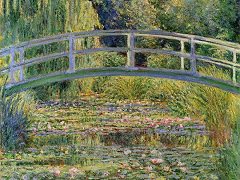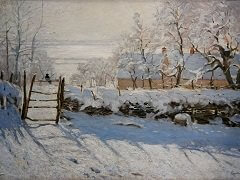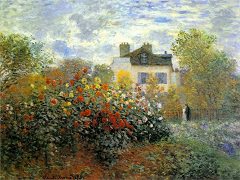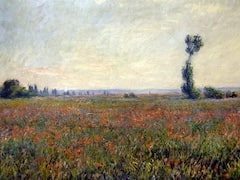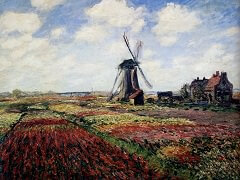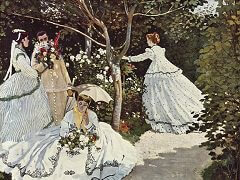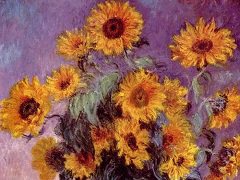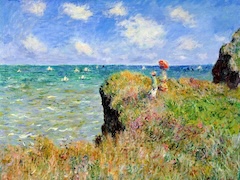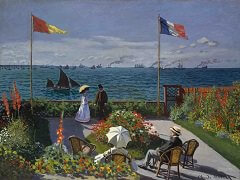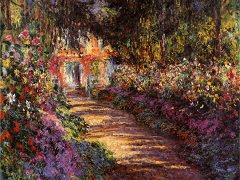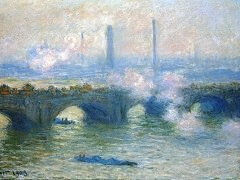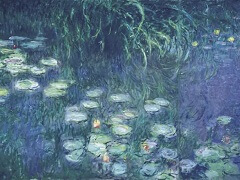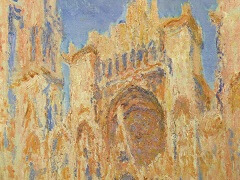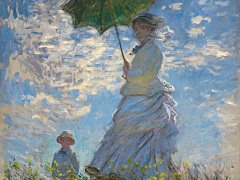Windmills in Rotterdam, 1870 by Claude Monet
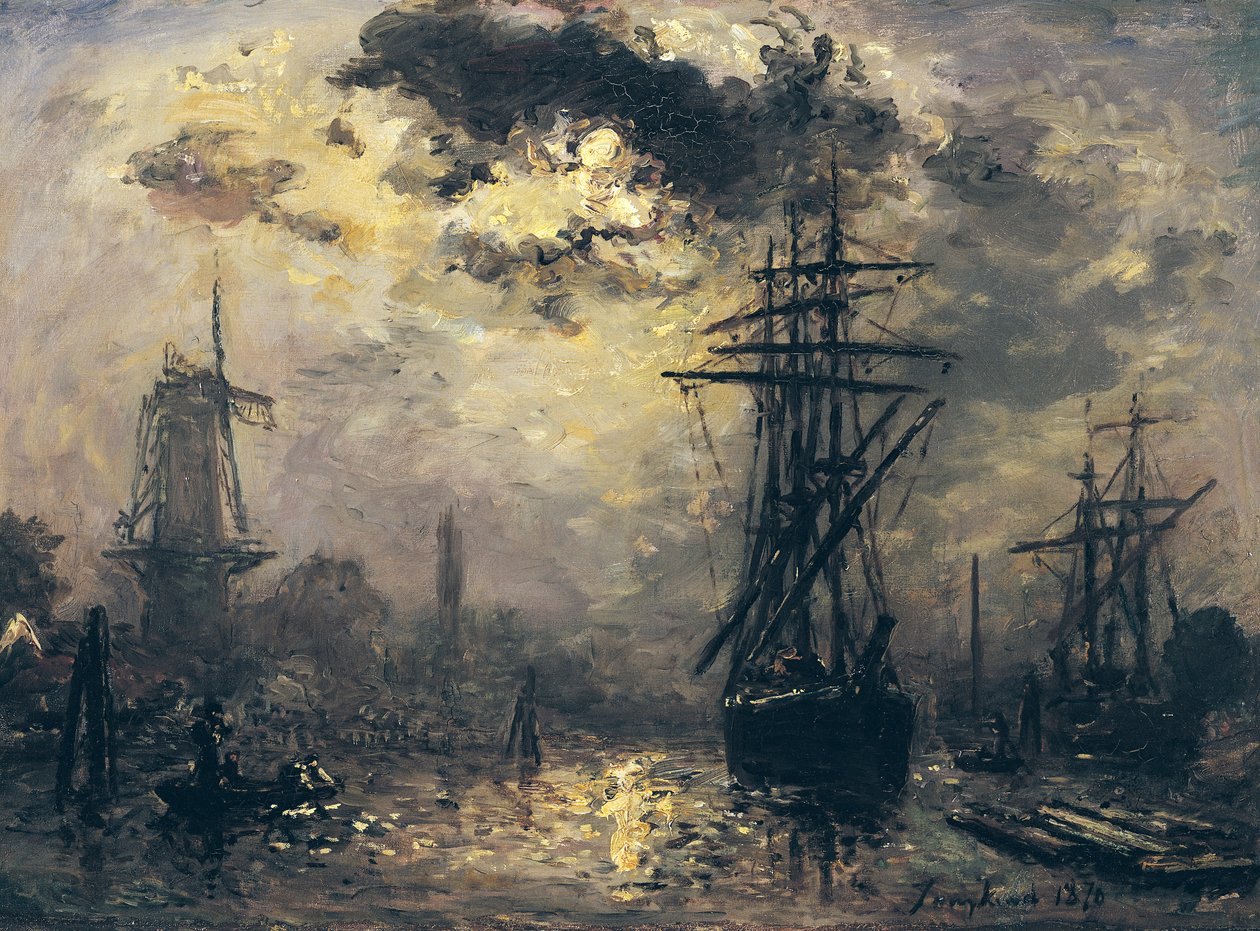
Claude Monet declared Jongkind to be 'the father of modern landscape' and he wrote that Jongkind 'completed the training that I have already had from Boudin. He became from this moment, my true master, and it is to him that I owe the final development of my painter's eye.'
Monet was already familiar with Jongkind's work when he met the artist in the summer of 1862 in Le Havre. Eugene Boudin, whom Monet often accompanied on painting trips was away painting in Honfleur and Trouville, and in his absence, Monet affiliated himself with the Dutch artist. Jongkind's use of brood, rapid brushstrokes, and his interest in the effects of weather and light were prominent early influences on Monet. Increasingly through his career, Jongkind moved away from the Dutch landscape influence of his upbringing towards the fresh, brilliance of color and light that is now most associated with the Impressionists. His work was greatly influential on the Impressionists as a group, and he is rightly cited as one of the early precursors to the movement.

